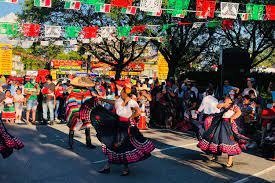Hispanic Heritage Month events across the United States are being scaled back or canceled as organizers grapple with growing concerns about safety, immigration enforcement, and heightened political tensions. What is usually a time of celebration and cultural pride has instead become a reflection of the anxieties facing Hispanic communities under the current administration.
Traditionally observed from September 15 to October 15, Hispanic Heritage Month highlights the contributions of more than 60 million Americans of Hispanic and Latino descent. Parades, concerts, and community gatherings often draw thousands of participants, showcasing art, music, dance, and food. This year, however, the festive atmosphere is subdued as cities and advocacy groups weigh risks against tradition.
Organizers in several states have pointed to fears of immigration raids and public safety incidents as reasons for downsizing events. In some communities, parades have been replaced with smaller indoor gatherings, while outdoor festivals have been either postponed or canceled altogether. Community leaders say they do not want to expose vulnerable families to environments where they might feel unsafe.
Local officials have echoed these concerns. Police departments and city councils in areas with large Hispanic populations have noted the increased challenge of balancing security needs with limited resources. Some cited threats of unrest or protests that could disrupt celebrations. This climate has fueled debate about whether canceling events protects or further isolates the communities they aim to honor.
Advocates for Hispanic rights say the decision to scale back is deeply symbolic. They argue that limiting celebrations sends a discouraging message at a time when Hispanic Americans face mounting challenges, including stricter immigration enforcement and divisive rhetoric in national politics. Community leaders stress that public recognition of cultural heritage is not only about joy but also about visibility and respect.
Despite the cancellations, smaller events are still moving forward. Local schools, churches, and cultural organizations are organizing workshops, lectures, and performances designed to honor Hispanic heritage in more intimate settings. These scaled-down gatherings aim to preserve the spirit of the month while reducing risks for attendees.
Public opinion remains divided. Supporters of scaled-back events believe safety must come first, particularly when families could face fear of harassment or enforcement actions. Critics counter that reducing celebrations plays into the very pressures and fears that threaten community unity, arguing that bold displays of heritage are more important than ever.
Hispanic Heritage Month is rooted in a tradition that began in 1968, when President Lyndon Johnson first declared a weeklong observance. It was later expanded to a month under President Ronald Reagan in 1988. The commemoration recognizes the independence anniversaries of several Latin American nations while celebrating the contributions of Hispanic Americans to U.S. history, culture, and society.
This year’s subdued celebrations highlight the complex intersection of culture and politics. For many families, the month is a chance to affirm identity, teach younger generations about their heritage, and share traditions with the wider public. But with uncertainty in the air, the tone is more cautious than festive.
Community leaders are urging resilience, emphasizing that even scaled-back events carry weight in affirming pride and belonging. They stress that Hispanic heritage is not defined by parades or public ceremonies alone, but by the ongoing contributions of millions of Americans across every sector of society.
As Hispanic Heritage Month continues, the scaled-back events serve as both a reminder of current challenges and a testament to enduring cultural strength. While the celebrations may look different this year, advocates say the message remains the same: Hispanic Americans are vital to the nation’s past, present, and future.







